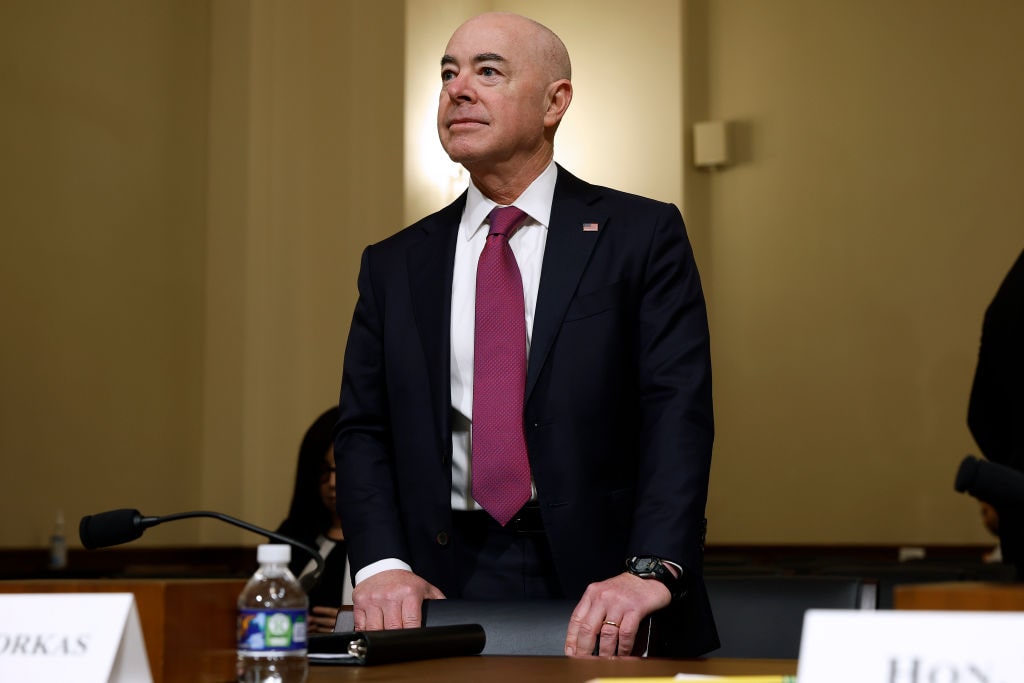What does the word “shall” mean? The answer could decide who wins the immigration battle currently being waged at the Supreme Court. Homeland Security Secretary Alejandro Mayorkas issued a memo to federal immigration law enforcement on September 30th, 2021. He directed recipients not to enforce the law against large groups of illegal aliens. Texas and Louisiana got a federal judge to block the policy, and the Supreme Court heard the Biden administration’s appeal on Wednesday, November 29th. It was a hot bench, with over two hours of arguments from Justices critical of both advocates’ positions and challenges on procedural and substantive issues. No case’s outcome can be confidently predicted at the High Court, but this one’s future is murkier than most.
We do not have Obama Judges or Trump Judges …
 Red states took Biden to Court and won when Trump appointee, District Court Judge Drew Tipton, issued a 96-page ruling in June of 2022 vacating the memo. Tipton ruled that multiple immigration laws include language that requires the executive to act through the use of the word “shall,” including one which states, in part: “The Attorney General shall take into custody any alien who—” It goes on to list many offenses. Judge Tipton’s ruling previously survived an appeal to both the Fifth Circuit Court of Appeals and the Supreme Court to stop its implementation. Now it is back before the highest court in the land.
Red states took Biden to Court and won when Trump appointee, District Court Judge Drew Tipton, issued a 96-page ruling in June of 2022 vacating the memo. Tipton ruled that multiple immigration laws include language that requires the executive to act through the use of the word “shall,” including one which states, in part: “The Attorney General shall take into custody any alien who—” It goes on to list many offenses. Judge Tipton’s ruling previously survived an appeal to both the Fifth Circuit Court of Appeals and the Supreme Court to stop its implementation. Now it is back before the highest court in the land.
Chief Justice John Roberts started what would be a rather relentless go at attorneys on both sides on Tuesday. He said, “I think anyway – ‘shall’ means ‘shall.’ What do we do in that situation?” What he got in response from Solicitor General Elizabeth Prelogar was an appeal to practicality. She asked him to consider how challenging the implementation of the law would be if they ruled the word “shall” meant what it meant. “If this Court were to actually adopt that interpretation of the statute, then I think that it would be incredibly destabilizing on the ground.” And then Roberts challenged her again:
Roberts: You’re still arguing that that would be wrong, to say “shall” means “shall.”
Prelogar: I think it would be wrong to say that “shall” means “shall,” and I would – I would welcome the chance to explain as a matter of statutory interpretation why that’s so, but, at the very least, I don’t think the Court should announce it as a judicially cognizable injury here that could justify interference by the courts in light of the practical ramifications.
Nevertheless, she persisted.
Chief Justice Roberts challenged the administration’s position on a procedural objection to the lower court ruling. First, he gently mocked Prelogar: “So you went from one argument to believing very strongly the other way?” And when her reply seemed to challenge the Court’s precedent announced in June, Roberts said, “I would have thought you’d have a little more concern about an opinion of ours that’s four months old. I mean, it’s not even out of the cradle yet and you’re throwing it under the bus.”
He also said:
“Now it’s our job to say what the law is, not whether or not it can be possibly implemented or whether there are difficulties there. And I don’t think we should change that responsibility just because Congress and the executive can’t agree on something that’s possible to address this – this problem. I don’t think we should let them off the hook.”

Secretary Mayorkas (Photo by Chip Somodevilla/Getty Images)
Mayorkas’ memo stated “there are more than 11 million” illegals in the US, but the department doesn’t have the resources to “seek removal of every one of these noncitizens.” Instead, it said, “we need to exercise our discretion and determine whom to prioritize for immigration enforcement action.” The official policy of the US government said that just being here illegally would no longer be “the basis of an enforcement action against them.”
Federal law enforcement – mainly US Immigration and Customs Enforcement (ICE) and US Customs and Border Protection (CBP) officers – were directed to apply the law to three groups of illegals: terrorists, those who threaten public safety, and those who pose a threat to border security. People in those categories still might not face enforcement, however, if they have enough mitigating factors, as presented in the memo. Conservatives derided the move as a de facto amnesty. Without having to go through a legislative process, Joe Biden and his progressive appointees changed the law.
Will They Fight the Immigration Battle – Or Punt?
Or did they exercise prosecutorial discretion? That is the principled defense of the administration’s position. The decision to investigate, charge, and prosecute inherently and exclusively belongs to the executive. Perhaps the Court members will prefer to opt for plan B instead of ruling on the case’s merits. By ruling on one of the several procedural challenges to the states, they might avoid issuing a ruling that may be impossible to enforce without having to say that words don’t mean what they otherwise mean. We should hear their decision by spring.

